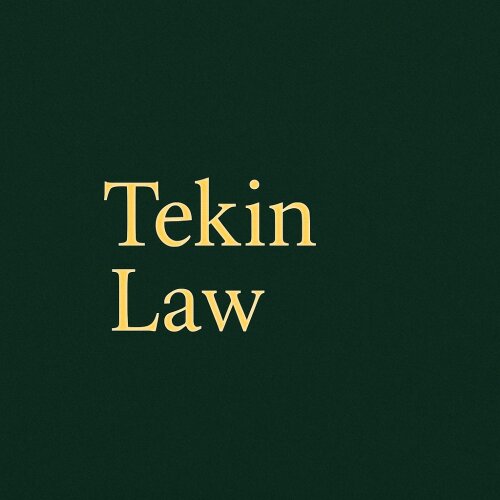Best Child Custody Lawyers in Turkey
Share your needs with us, get contacted by law firms.
Free. Takes 2 min.
Free Guide to Hiring a Family Lawyer
Or refine your search by selecting a city:
List of the best lawyers in Turkey
Legal guides written by Tekin Law Firm:
- Arbitration in Turkey
Turkey Child Custody Legal Questions answered by Lawyers
Browse our 1 legal question about Child Custody in Turkey and read the lawyer answers, or ask your own questions for free.
- Custody
- I am a foreginer, but i have a son in Philippines. We never married with my gf coz she was married before. Now we separated, and she took my son. But now she is saying me that she willl leave him to his mom and she will go to abroad.... Read more →
-
Lawyer answer by Kule Hukuk Bürosu
According to the Turkish legal system, custody of children born out of wedlock is generally given to the mother. However, the father can request custody or visitation rights, focusing on the best interests of the child. If you wish to...
Read full answer
Turkey Child Custody Legal Articles
Browse our 1 legal article about Child Custody in Turkey written by expert lawyers.
- What Are the Child Custody Laws in Turkey?
- Table of ContentsIntroduction: Understanding Turkish Child Custody LawsThe Golden Rule: The "Best Interests of the Child" PrincipleThe Legal Foundation: Turkish Civil Code and International LawTypes of Custody Arrangements in TurkeySole Custody (Tek Başına Velayet)Joint Custody (Ortak Velayet)Custody for Unmarried ParentsThe Court Process and the Social Investigation ReportFinancial Considerations: How Child... Read more →
About Child Custody Law in Turkey
Child custody in Turkey is primarily governed by the Turkish Civil Code and the Law on the Establishment, Duties, and Trial Procedures of Family Courts. The principle consideration in custody cases is the best interest of the child. Custody can be awarded to either parent, or, in some cases, third parties, depending on circumstances such as the ability to provide a stable environment, each parent's relationship with the child, and any evidence of abuse or neglect.
Why You May Need a Lawyer
Engaging a lawyer for child custody matters in Turkey is advisable due to the complexity of the legal process and the emotional intensity surrounding family disputes. Common situations where legal assistance is beneficial include divorce or separation negotiations, contested custody battles where both parties seek custody, modification of existing custody orders, enforcement of custody agreements when a party is non-compliant, and situations where there are allegations of child abuse or neglect.
Local Laws Overview
Key aspects of child custody laws in Turkey include joint responsibility of parents in nurturing and caring for their children, the influence of parental behavior and lifestyle on custody decisions, and consideration of the child's preference if the child is of sufficient maturity. Additionally, Turkish law emphasizes frequent and continuing contact with both parents when possible as being in the best interest of the child.
Frequently Asked Questions
What factors do Turkish courts consider in custody decisions?
Courts consider the best interests of the child, parents' health and financial status, living conditions, and the emotional ties between the child and the parents, among other factors.
Can grandparents seek custody of their grandchildren in Turkey?
Yes, in certain circumstances such as the death or incapacity of the parents, grandparents or other family members can seek custody.
Is joint custody common in Turkey?
Joint custody is recognized but not as commonly awarded as sole custody, particularly if the parents cannot cooperate effectively for the benefit of the child.
Can a parent with custody relocate to another city or country?
A parent with custody must get the other parent's consent or court approval to relocate with the child, especially if it affects the other parent's visitation rights.
What is the role of psychological evaluation in custody cases?
Psychological evaluations can play a critical role, providing the court with insights into the child's best interests, parental capabilities, and family dynamics.
How can custody decisions be changed?
Custody decisions can be modified if there is a significant change in circumstances affecting the child's welfare, such as a parent's relocation, incarceration, or change in living conditions.
Is mediation required in custody disputes in Turkey?
Mediation is encouraged to resolve disputes amicably without litigation, but it is not mandatory in Turkey for custody disputes.
Can a non-custodial parent be denied visitation rights?
Visitation rights may be restricted or denied if the visit is deemed harmful to the child's well-being, but this is not a common outcome.
What happens if a parent violates a custody order?
Violations of custody orders can lead to legal consequences, including contempt of court proceedings, fines, or modifications of the custody arrangement.
At what age can a child decide which parent to live with?
Though there is no specific age, the child's wishes are considered more seriously from around the age of twelve, provided the child exhibits a certain level of maturity.
Additional Resources
For further assistance, individuals can reach out to the Ministry of Family and Social Services, family courts, or legal aid services for guidance. Additionally, organizations like the Turkish Bar Association or non-governmental organizations specializing in family law can offer resources and support.
Next Steps
If you need legal assistance concerning child custody in Turkey, consider consulting with a lawyer who specializes in family law. Begin by gathering all relevant documentation pertaining to the child's well-being and any existing custody arrangements. Schedule an initial consultation with a lawyer to discuss your case, potential outcomes, and the steps involved in resolving custody disputes legally. This guidance can help you make informed decisions moving forward.
Lawzana helps you find the best lawyers and law firms in Turkey through a curated and pre-screened list of qualified legal professionals. Our platform offers rankings and detailed profiles of attorneys and law firms, allowing you to compare based on practice areas, including Child Custody, experience, and client feedback.
Each profile includes a description of the firm's areas of practice, client reviews, team members and partners, year of establishment, spoken languages, office locations, contact information, social media presence, and any published articles or resources. Most firms on our platform speak English and are experienced in both local and international legal matters.
Get a quote from top-rated law firms in Turkey — quickly, securely, and without unnecessary hassle.
Disclaimer:
The information provided on this page is for general informational purposes only and does not constitute legal advice. While we strive to ensure the accuracy and relevance of the content, legal information may change over time, and interpretations of the law can vary. You should always consult with a qualified legal professional for advice specific to your situation.
We disclaim all liability for actions taken or not taken based on the content of this page. If you believe any information is incorrect or outdated, please contact us, and we will review and update it where appropriate.
Browse child custody law firms by city in Turkey
Refine your search by selecting a city.

















